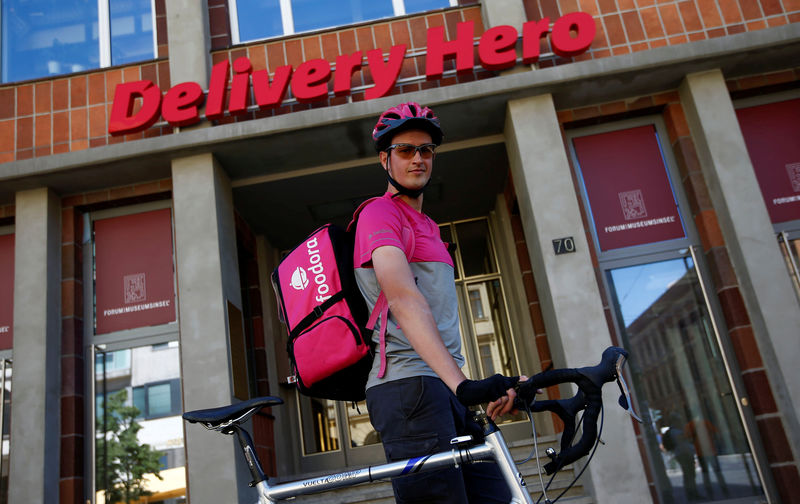This post was originally published on this site
https://i-invdn-com.akamaized.net/news/LYNXMPED550P5_M.jpg
Investing.com — Fans of Avenger and X-Men movies will be well versed in the psychology of people’s need for heroes. The trouble often starts when you look for them in the wrong places.
Few markets in the world need a hero more than Germany’s right now, after the spectacular explosion of Wirecard (DE:WDIG), the payments company that managed to fool a whole load of investors and strategic partners – not to mention its auditor and its regulator – into thinking that it was a legitimate business riding a wave of technological innovation into a glorious future.
No-one is suggesting that meal delivery company Delivery Hero (DE:DHER) is a fraud, but with the stock rising another 5.1% to a new all-time high on Friday on the back of some preliminary sales numbers for the second quarter, it’s legitimate to ask whether it, too, isn’t benefiting unduly from investors’ need for a hero.
The stock has rallied 45% year-to-date and is up over 60% from its March lows, with the performance of the last three months owing much to the perception that it belongs in the “stay-at-home” class of stocks whose growth trajectory has permanently changed for the better thanks to the Covid-19 pandemic.
Friday’s numbers appear to bear out such confidence. Order numbers were up 94% from a year earlier in the three months through June, and the growth appeared to be gaining momentum toward the end of the quarter: June’s figures were up 104% from a year earlier. Gross merchandise value, meanwhile was up 64% from a year ago over the quarter.
Both revenue and GMV growth accelerated from the first quarter’s levels of 58% and 92% respectively.
All well and good. But what about the profits? Delivery Hero lost money in both of the last two years, and its EBITDA margin widened from -14.6% in 2018 to -29.5% last year (it’s predicting something between -14% and -18% this year). In the Middle East & North Africa region, the only one where it makes money at an EBITDA level, orders fell in the quarter (due to temporary curfew restrictions on deliveries). The biggest increases in business came in markets where it loses the most money on every delivery: the Americas and Asia.
There was no word on whether this surge in business volume had done anything to improve margins, which is a bit odd, given that a company that makes repeated losses might want to flag any improvement on that score. It has already warned that the MENA business faces a 50 million euro hit to EBITDA.
In fairness, Delivery Hero operates in a lot of markets – almost all of them emerging – and it may be asking too much for bottom-line guidance so soon after the quarter’s end. But the update didn’t even include top-line guidance.
The absence of such information – at least until July 28, when the full quarterly results are due – is a reminder that meal delivery in general is still to prove its viability as a business model. Delivery Hero managed to raise over 2.2 billion euros ($2.4 billion) in January through the issuance of new shares and convertible bonds, so there are no immediate concerns about its financial health.
All the same, it still needs to prove that it can do more than just lose money over a longer period.

